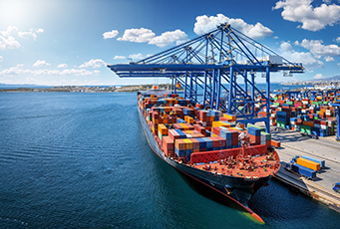If you’ve tuned into the news recently, you’ve probably been inundated with countless stories about tariffs and trade wars. What’s the impact on consumers and American businesses? Will our economy grow stronger or suffer from the consequences?
All the talk and hype can make it difficult to understand what’s actually happening. Let’s cut through the political talking points and focus on what tariffs actually are and their potential impact on the economy – and your pocketbook!
What Are Tariffs?
First, let’s take a theoretical look at tariffs. Simply put, a “tariff” or “import tax” is the cost added to a product purchased from another country that effectively raises its price. The logic behind imposing tariffs is that the higher price on these imports will make them less attractive to American consumers, who will then buy fewer of them. American businesses benefit because they are in a better position to compete with their foreign counterparts. This could potentially lead to a decrease in future imports and help bring a trade deficit closer to balance.
Today’s Talk
So why is everyone talking about tariffs? Over the past several months, President Donald Trump has revealed plans to impose tariffs on a number of imported goods. These goods range from market-ready products, such as solar panels and washing machines, to manufacturing inputs such as steel and aluminum. Most recently Trump signed an executive order imposing retaliatory tariffs specifically targeted at up to $60 billion of Chinese goods.
These tariffs are designed to penalize China for claims of unfair trade practices, i.e. the U.S. believes that China is manipulating a lower cost for goods imported to the U.S. A U.S. tariff is meant to counter and basically level the playing field for U.S. manufacturers. While the White House hasn’t released the exact targets of the tariff plan, it’s expected to cover nearly 1,300 different products. There’s speculation the technology sector will be hit the hardest.
In 2017, the United States had a trade deficit with China of over $375 billion -- the highest on record. While the decision to impose tariffs was not a surprise given Trump’s comments during the campaign, it produced a whiplash effect to the U.S. equity markets. The DOW Jones dropped nearly 1,500 points over the following two days before rallying nearly 700 points the next. Why? Investors were weighing the likelihood of an impending trade war with a large U.S. trading partner.
Winners and Losers
It’s easy to recognize the positive impact tariffs have on the U.S. companies producing the protected items. But you also need to consider the adverse and less obvious effects such policies could have on other segments of the economy.
American consumers purchase many foreign-made goods mainly because they are cheaper. If these goods are taxed, they’ll now pay more for these same items. This means there will be less money in their wallets at the end of the day.
Another sector that stands to lose is companies that use the items that are targeted by tariffs. They may use them to manufacture their own products or sell them directly to consumers. Either way, consumers are going to pay more.
For example, a company like Wal-Mart, which purchases many items made overseas, will be hit with higher costs. Wal-Mart will then likely pass the increase on to you and you’ll pay more. Here’s where it could all go downhill. Some consumers won’t be able to afford the item or they’ll decide it isn’t worth the money. This may potentially cause Wal-Mart’s sales to decrease. Lack of sales means loss of jobs for Americans. It’s a snowball effect.
Simmering Trade War?
One final consideration is how countries will react to the U.S. taxing goods their companies sell. It’s common for countries to retaliate and slap tariffs on U.S. products to fight back. This scenario could undo some of the intended domestic benefits -- not to mention lead to increased tensions between major global economic and military powers.
The expansion of international trade has been a major contributor to global peace. Anything that destabilizes that is a cause for concern. There’s a lot of truth to the saying: “When goods cross borders, armies don’t.
Summary
Economic theory teaches us that free and open trade produces the best results for everyone involved. However, when one country tries to manipulate one side of the equation, an imbalance occurs.
The U.S. and China continue to negotiate, so the details of Trump’s tariff plan remain uncertain. What is certain is that any action will undoubtedly benefit some at the expense of others. The impact on the stock markets, though…well, that’s less obvious.
Recommended Articles
Private Equity and M&A in a Low-Rate World
Deal flow is the stream of business proposals, investment...
The Bonds that Tie – An Exciting Look at Fixed Income
With today’s yields being much higher than the close to...
Is America’s Tariff War Reshaping the U.S. Economy?
The 2025 tariff regime marks the highest average...





